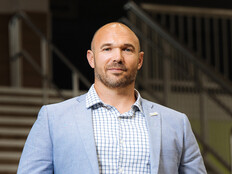Bill Gates Talks Artificial Intelligence in Education
Could artificial intelligence advance human intelligence? Bill Gates thinks so.
In a recent interview with The Verge, the Microsoft founder and long-time education proponent explained how advancements in AI will make personalized learning more effective.
At present, personalized-learning software allows students to move through course content at their own pace: Students who master material quickly advance to the next subject, while students who require extra practice can revisit modules as needed.
Although studies — such as those conducted by the Bill and Melinda Gates Foundation — show that the approach can positively impact learning outcomes, Gates thinks there’s room for improvement, especially when it comes to human-software interactions. He describes the technology’s failings in his interview with The Verge:
Today’s interactivity is OK: I answered a few questions wrong, so then it repeats the lecture. [With an AI tutor,] I can engage in a dialogue. You know, part of the reason I’m so willing to tackle new subjects is that for each of those subjects, if I get utterly confused, I know somebody I can send an email to, and they’ll straighten me out. If you can’t have somebody straighten you out, and say, “Is this as complicated as I think? Am I missing something here?” then you’re probably not as ambitious.
Chatbots, which rely on AI to simulate human conversation, could bridge the gap between personalized-learning software as it stands today and Gates’s vision of the future. Microsoft has already made headway in this area, experimenting with a chatbot called Tay and outlining practical applications for its Conversations as a Platform initiative.
In his interview, Gates suggests that leveraging the technology within the education space could someday soon provide students with the subtle guidance they need to learn more effectively: “The idea that you could talk to a [virtual] advisor that would understand different misconceptions and arbitrary linguistics around it, that’ll certainly come in the next decade,” he says.









